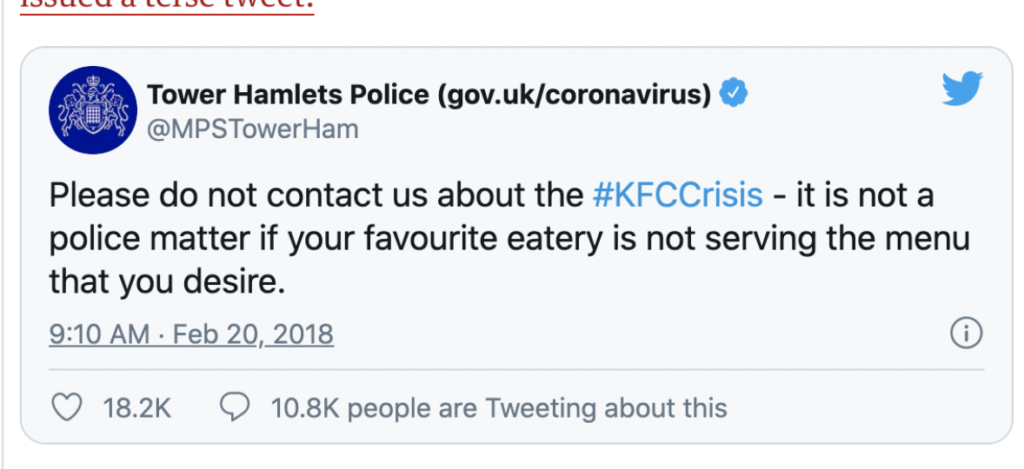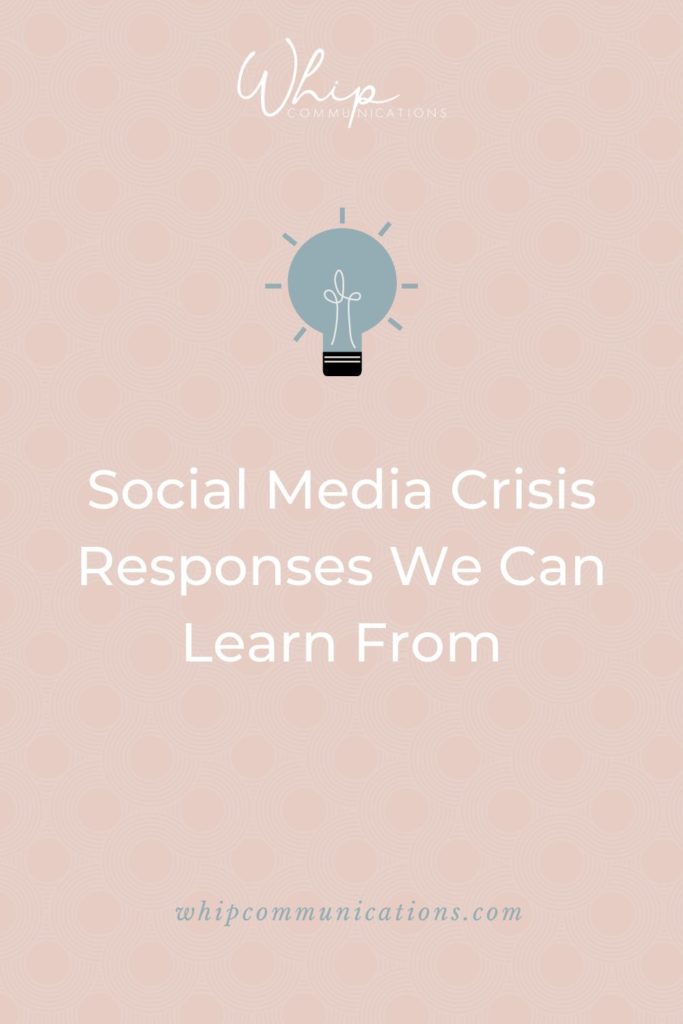Companies are run by humans, which means it’s no surprise that mistakes happen. Sometimes you run out of chicken. (Yes, really — keep reading to see what I mean.)
What will make or break your business is how you respond to those mistakes. Are you defensive, do you speak without thinking, or do you reflect, plan, and respond with care?
Here are 3 social media crisis responses we can all learn from — whether it’s professionally or personally.
Hannah Brown’s N-Word Controversy | @hannahbrown
The Crisis: While on an instagram live, Brown, a former Bachelorette, was singing and dancing to the song Rockstar by DaBaby. There is a line of the song that says the N word and she, a white woman, said the word. The comments of the live began blowing up, she immediately began denying it, in disbelief she could have said the word. She denied, and then gave a disingenuous apology.
The Public Reaction: Not. Good. The hours following, fans of the Bachelor franchise and non-fans came at her guns blazing. They were disappointed to see the personality they loved so much on tv make such a poor choice.
Fans began unfollowing her and brands even began to remove endorsements. Other members of Bachelor Nation condemned her behavior and tried to help her understand her wrongdoing.
The Fix: After days of silence Brown, again, went live on instagram. She shared the journey of education and self-reflection. Essentially, Brown did not ask to be excused. She took full responsibility for her wrongdoing and instead promised to learn.
Since returning to social media, Brown has worked to amplify Black voices and share the steps she is continuously taking to educate herself. Brown’s transparency and proven action taken allowed for fans and non-fans alike to trust that she actually saw the fault in her action and there would be change.
Refinery29’s Workplace Discrimination | @refinery29
The Crisis: The femme positive organization faced accusations of racism and discrimination in the workplace. Refinery’s co- founder and editor-in-chief, Christene Barberich had misidentified Black employees on multiple accounts.
Others revealed that a Black employee was being paid $15,000 less than a white colleague working the same job. Once these reports had been made, it was clear that as a platform that promotes equality, change needed to be made. Barberich stepped down and this was the company’s “step one”.
The Public Reaction: I first found out about this scandal when one of my former colleagues (who recently worked at Refinery29) shared her story of discrimination. And I was mad! R29 expects young women to trust them, but treated their employees terribly.
Many other followers voiced little surprise as the account constantly failed to elevate voices of POC. Many found this step one insufficient as there was no actual apology in the statement. The public above all else was calling for transparency.
The Fix: Their next public statement was not received as positively as I’m sure the company would have liked. But the important thing to remember is that a post does not make things go away immediately.
Since then, it’s clear that the R29 Instagram begins to reflect a more inclusive culture. They chose to highlight Black voices instead of sharing their own words. Unfortunately, systemic issues are much harder to fix because they are so deply rooted.
My suggestion? Start out with a healthy workplace environment. Tiffany Napper shares how to build an inclusive business in this blog.
KFC’s FCK Bucket | @KFC
Yes, this is real, and it is one of my absolute favorite PR responses!
The Crisis: In nearly 900 UK and Ireland franchises there was a major chicken shortage due to a supply chain error and lack of planning.
The Public Reaction: The public was very disappointed as well as frustrated. Fast food has provided a ‘what you want when you want it’ mindset that is hard for consumers to abandon. While this is not a crisis that personally offended anyone, it did really harm sales for the chicken restaurant.
People were so disappointed they were even reaching out to the police department in concern. (#Overreaction much?)

The Fix: KFC took to the media in a funny and relatable manner. They printed buckets said “FCK” instead of KFC. It showed the humanity of the brand and stayed true to the brand voice. They also posted a Q and A to remain transparent about the situation. You can watch this video to hear from the content creators about their thought process.
The positive response to this ad was overwhelming. Their target market found the profanity hilarious and personable. They liked that it was not the typical stuffy corporate message many companies choose to send out during a crisis.
Lesson Learned: Stay true to your brand voice.
There is never going to be a PR response that leaves every member of the public feeling satisfied. However, providing a transparent response that is true to your brand voice helps followers and consumers truly see the action your brand will take to right the wrong at hand.
Pin this for later 📌


Be the first to comment